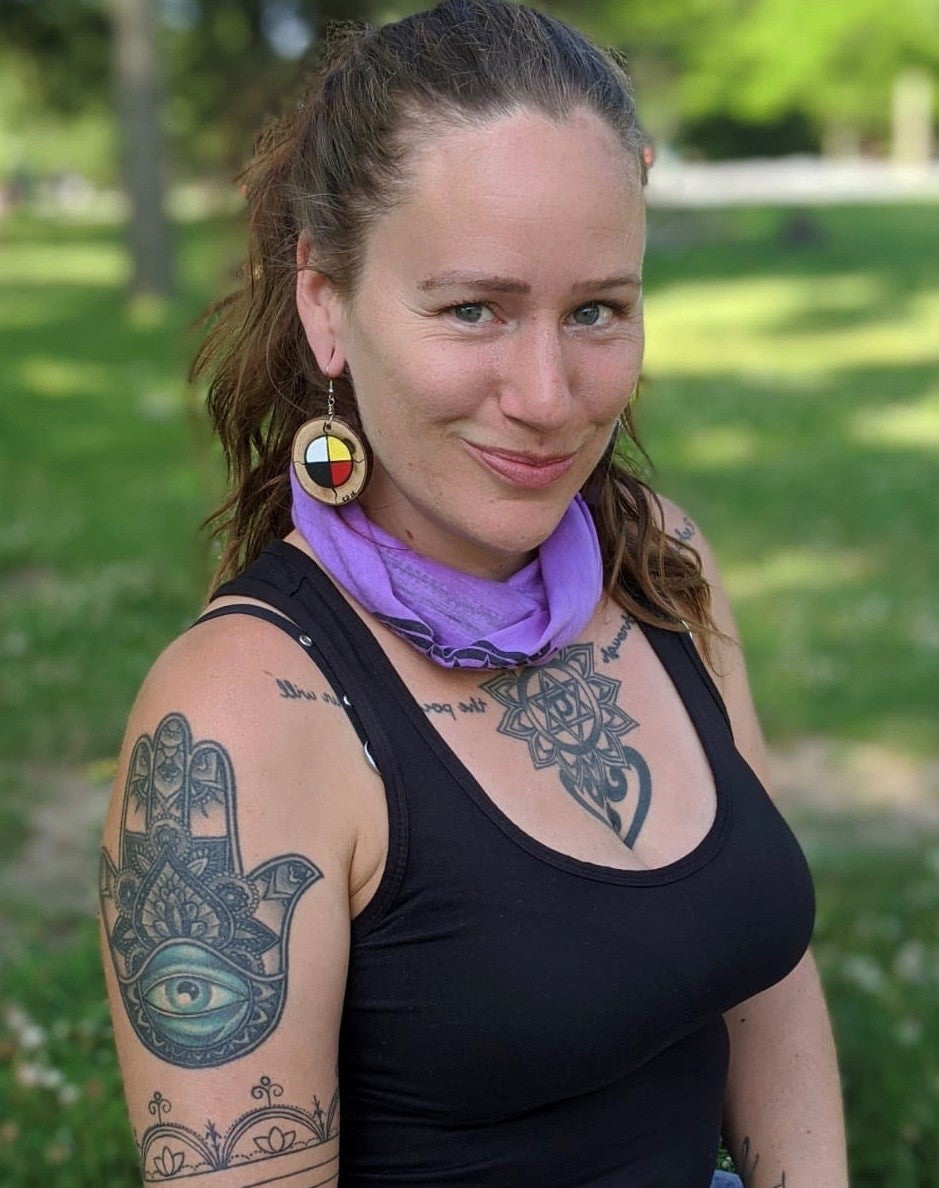
Happy New Year!
Welcome to the ninth issue of the Catalyst anti-racism newsletter. For the last nine months, the Catalyst has been providing the University community with monthly updates from the President’s Anti-racism Taskforce (PART) and other dedicated individuals and teams working across campus to counter systemic racism and oppression. We look forward to sharing these stories with you for the new year.
In this issue:
You can also click here to read past issues of the Catalyst here. Until our next issue in February, enjoy reading!

THE CATALYST
Subscribe now to receive each issue of this newsletter direct to your inbox
Anti-racism across campus
 Celebrating Black History Month
Celebrating Black History Month

A Message from the Ujima Black History Month planning committee
In 1995, the House of Commons recognized February as Black History Month in Canada. During this month, many Canadians and institutions take a moment to examine the dark history of racism in Canada that was generated from slavery and the Transatlantic slave trade.
The emergence of Black History Month is attributed to Carter Woodson (1875-1950) who is known as the father of Black History. As a historian and published author, Woodson was concerned that the stories of Blacks and their achievements were not recognized and shared in the wider world. He dedicated his life to educating African Americans about the achievements and contributions of their ancestors. In 1926, he dedicated the second week of February to celebrating Black achievements. Within a decade the celebration of Black history had grown tremendously. While it was proposed to become an annual American celebration in 1969, it was not until 1975 that President Gerald Ford recognized February as Black History Month. Ford commented that the accomplishments of African Americans had been neglected for too long.
Today, during the month of February, people around the world celebrate incredible stories of Black people, who have made a tremendous impact in our world, such as Booker T. Washington, Frederick Douglas, W.E.B. Dubois, Rosa Parks, Martin Luther King, Malcolm X, Marcus Garvey, Bob Marley, Nelson Mandela, and so many others. In Canada, we also celebrate those who have contributed to Black liberation and progress, such as Viola Desmond, Lincoln Alexander, Oscar Peterson, and George Elliott Clarke - to name a very few.
Black History Month is also a reminder that during the other eleven months of the year we must continue to learn, reflect and act on the need for a more equitable and just society where all can feel a sense of belonging and inclusivity.
What can you expect from Ujima Black History Month at UWaterloo?
We’ve entitled our University’s celebration of Black History Month with the symbol Ujima. The creator and founder of Kwanzaa, Dr. Maulana Karenga, stated that Ujima, a Swahili word from South Africa, is the principle of collective work and responsibility. Ujima is also “a commitment to active and informed togetherness on matters of common interest” and represents the internalized ethos that guides one’s life for the common benefit of ourselves and our larger communities. With the goal of liberation from oppressive forces, and we want our UWaterloo community to understand that, though we might differ in strategy and process, this fundamental goal is something we can achieve together. Most importantly, Ujima recognizes that “without collective work and struggle, progress is impossible, and liberation unthinkable”.
You can expect virtual events, stories, and other initiatives by and with UWaterloo folks and guests that, echoing Karenga, speak to a collective culture and identity and highlight our shared responsibility for institutional and wider systemic change.
Student feature

Originally published by Waterloo news on January 6, 2022
Cassie Myers was an undergraduate Arts student when a professor took her class to visit a startup incubator on campus. That visit was the beginning of a mindset change for Myers. “I knew I had a lot of issues that I cared about but before then I had never considered entrepreneurship as a viable future for myself,” she says.
Today, Myers is the founder and CEO of Lunaria, a diversity, equity and inclusion (DEI) company with four employees and office space in the Grebel Peace Incubator at the University of Waterloo — the very place she was first exposed to entrepreneurship.
To read the entire story click here.
Department feature

As part of its commitment to provide the best services, experiences, and spaces possible, while ensuring students have a safe space to call home, Campus Housing had developed a plan of action to support belonging and inclusion and help to combat racism at the University of Waterloo.
One of the largest campus housing providers in Ontario, Campus Housing serves a broad community, rich with diverse cultures, faiths, and world views, which makes the crucial work of creating an environment free of discrimination, injustice, and violence absolutely paramount.
The Campus Housing Equity, Diversity, Inclusion, and Anti-racism response plan of action was developed to advance systemic change, where members of the community can study, research, work and live in an inclusive environment, free from discrimination.
Campus Housing has taken four major actions to accomplish this change, including making anti-racism training mandatory for all staff, completing a literature review of the body of knowledge available on EDI in student housing, designating office space in the UW Place Grand Commons and Mackenzie King Village to support student services such as the Women’s Center and MATES and completing a review of the conduct system with racialized groups.
"Because we respect the diversity of all members of our community and value their contributions to all aspects of university life, we are committed to bringing about positive changes that combat systemic racial discrimination and better support racialized members of our community, ” said Glen Weppler, director of Housing.
Future actions aimed at supporting Campus Housing and by extension UWaterloo in becoming a more inclusive, diversified, anti-racist institution include requiring equity training for new staff, as part of their onboarding, incorporating more equitable hiring practices for student-staff roles, and committing to keeping the community informed on EDI calls to action.
“Although Campus Housing has taken a major step toward addressing racism and advancing equity, diversity, and inclusion, we recognize that more urgent actions are needed as we seek to eliminate racism. We are focused on continuous improvement and will continue to engage and collaborate with students, staff, and campus partners, to further develop our plan of action," Weppler said.
Weppler and his team look forward to taking more proactive approaches to eliminate any barriers that racialized groups may encounter, through continued dialogue, education, and working collaboratively with University community members to create and sustain respectful, inclusive, and equitable environments.
Research spotlight

Originally published by the Library on December 7, 2021
The Library recently launched its first-ever Indigenous Research Guide. A collaborative partnership between the Library, Graduate Student Association (GSA) and the Office of Research, this guide will help Indigenous students and those interested in Indigenous studies and research methodologies discover available resources in the Library’s collection and how to approach such research.
This project all began with Jaydum Hunt, a graduate student who was working as the campus partnership coordinator for the GSA at the time. She was on the lookout for projects that could result in concrete action to support students on campus. With her own Indigenous background and research focus, when she discovered a gap in the Library’s research guides an idea began to take root. Seeking out Jean Becker, associate vice-president Indigenous Relations, for feedback and support, Jaydum was quickly connected with Kathy MacDonald, head of Information Services and Resources at Dana Porter Library.
To read the entire article click here.
Bulletin board

Black, Indigenous, and other racialized students are invited to explore their experience with food and food (in)security through digital storytelling in the Elevating Voices of Food Insecurity online workshop. Guided by expert facilitators, you'll have the opportunity to create your own 2–4-minute digital story through “We Video” that envisions the future of food on your campus. Once you have created your story, you will have the opportunity to work with members of the project team to share your story with food activists and advocates at Waterloo.
To read more click here.